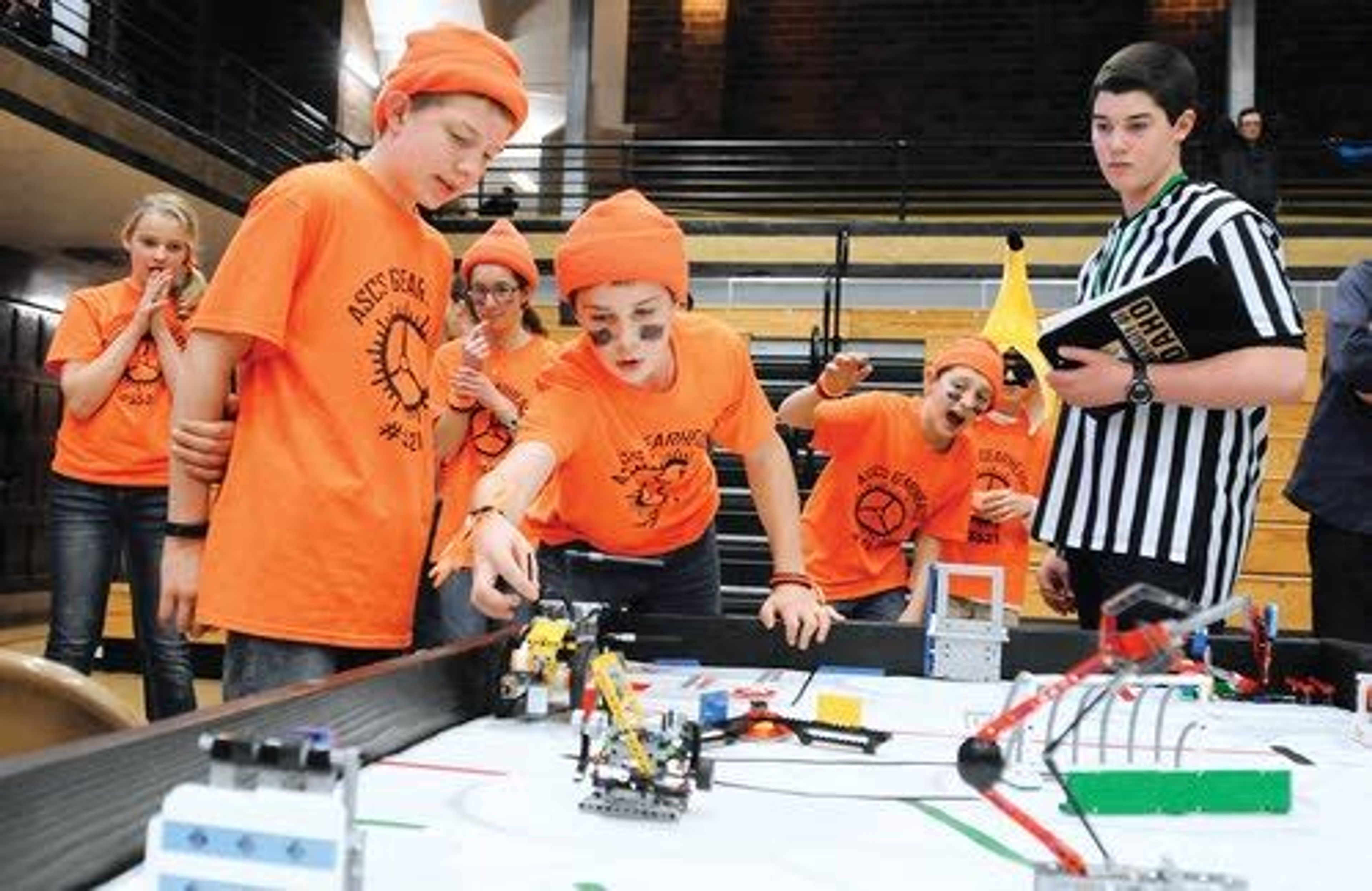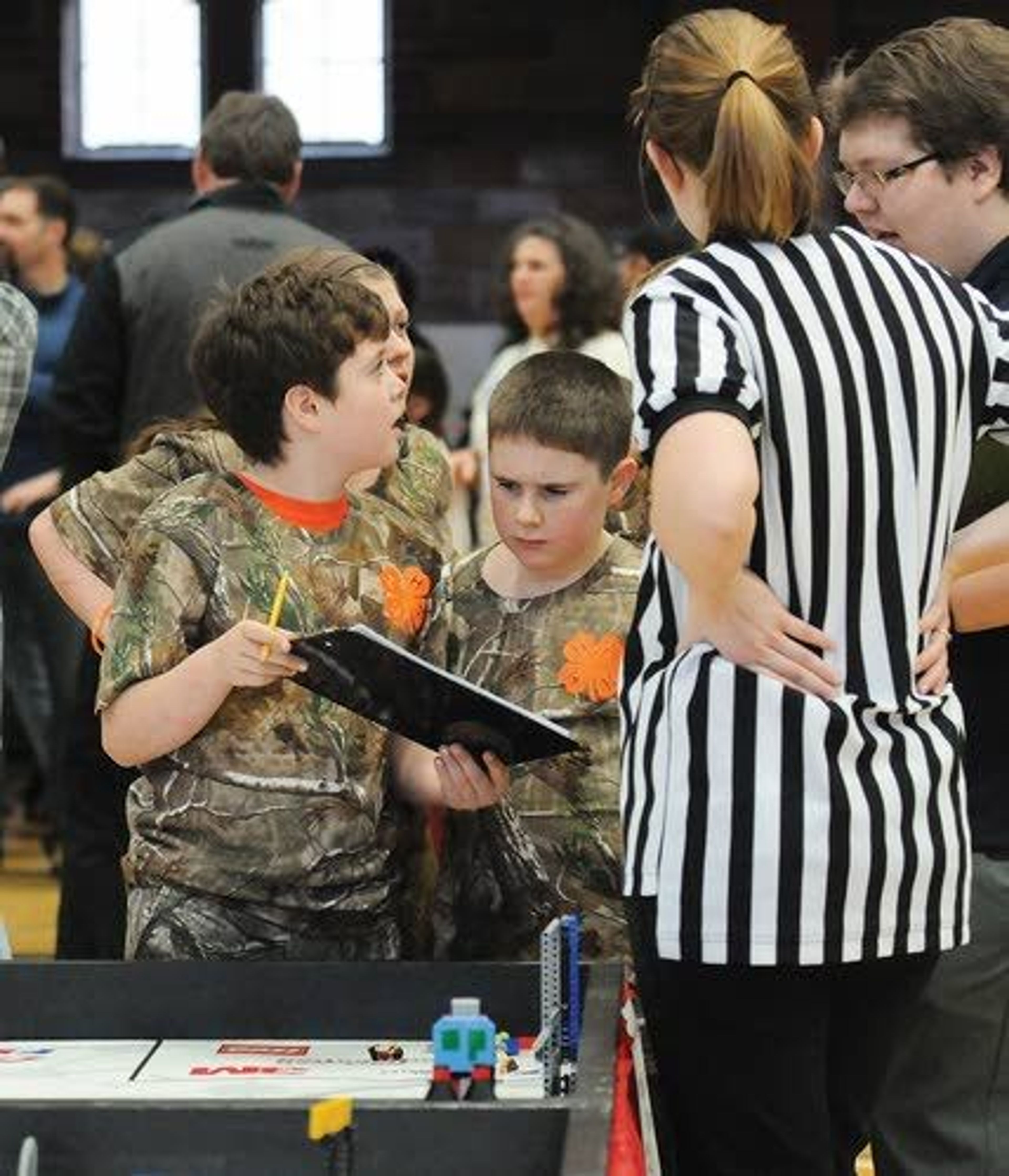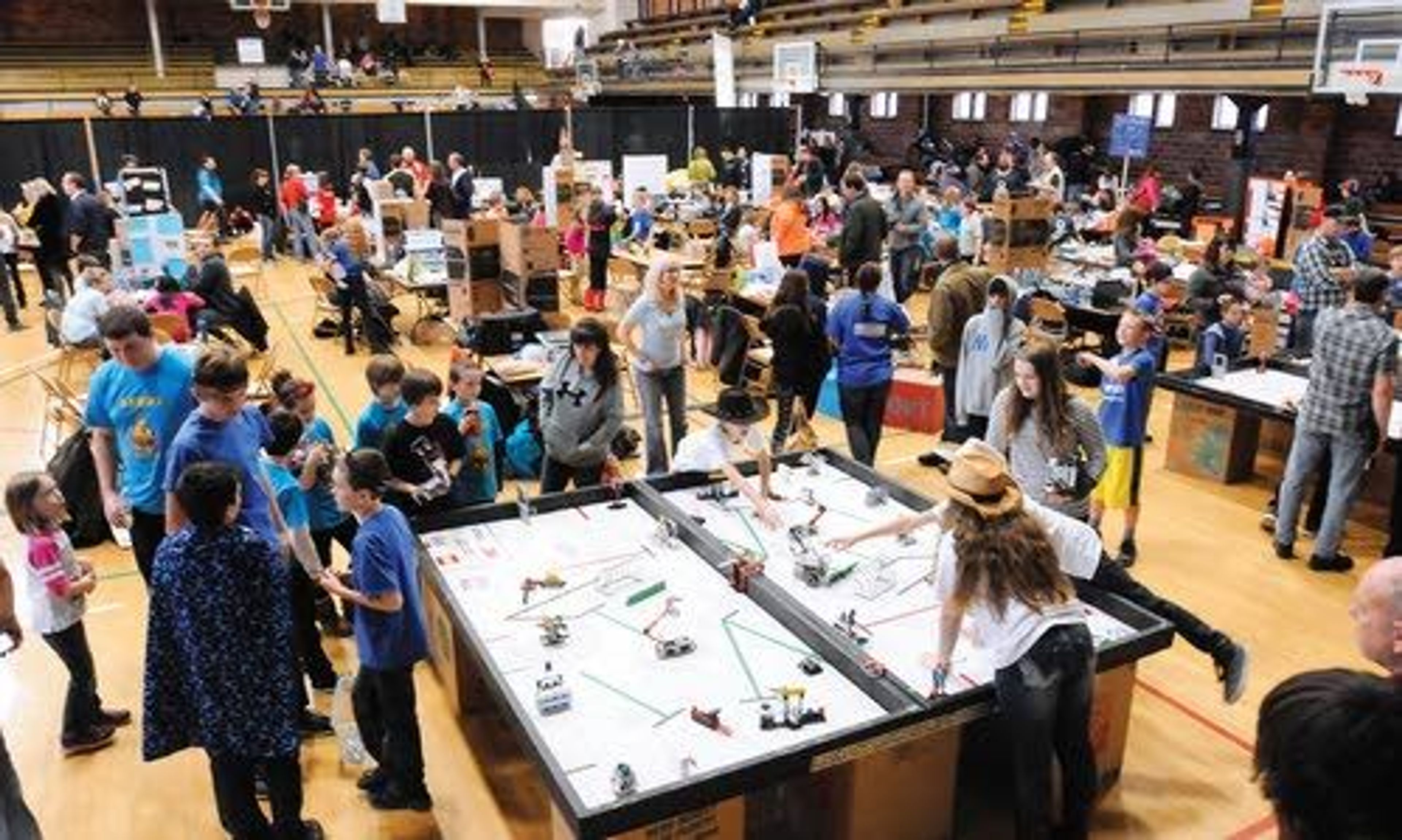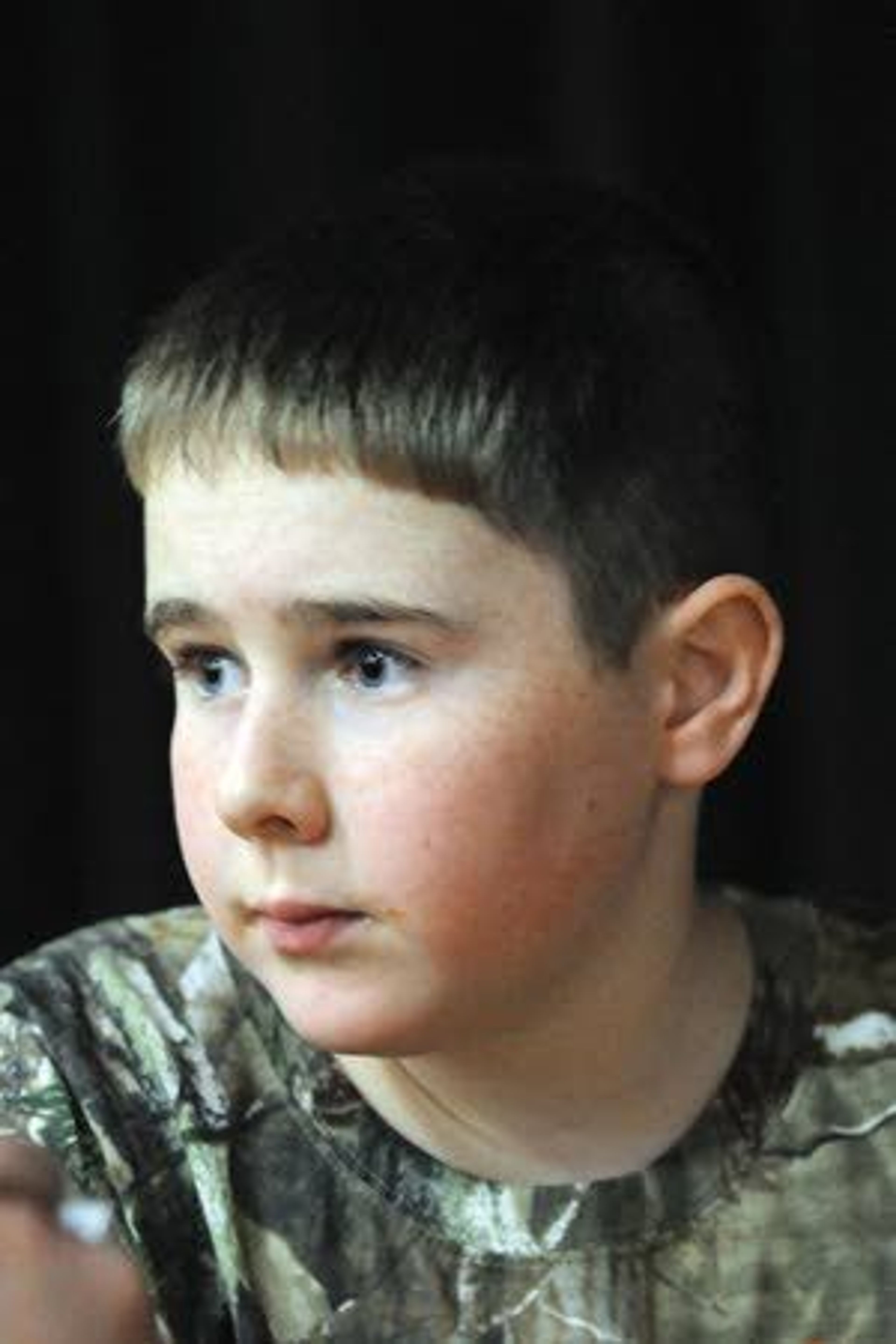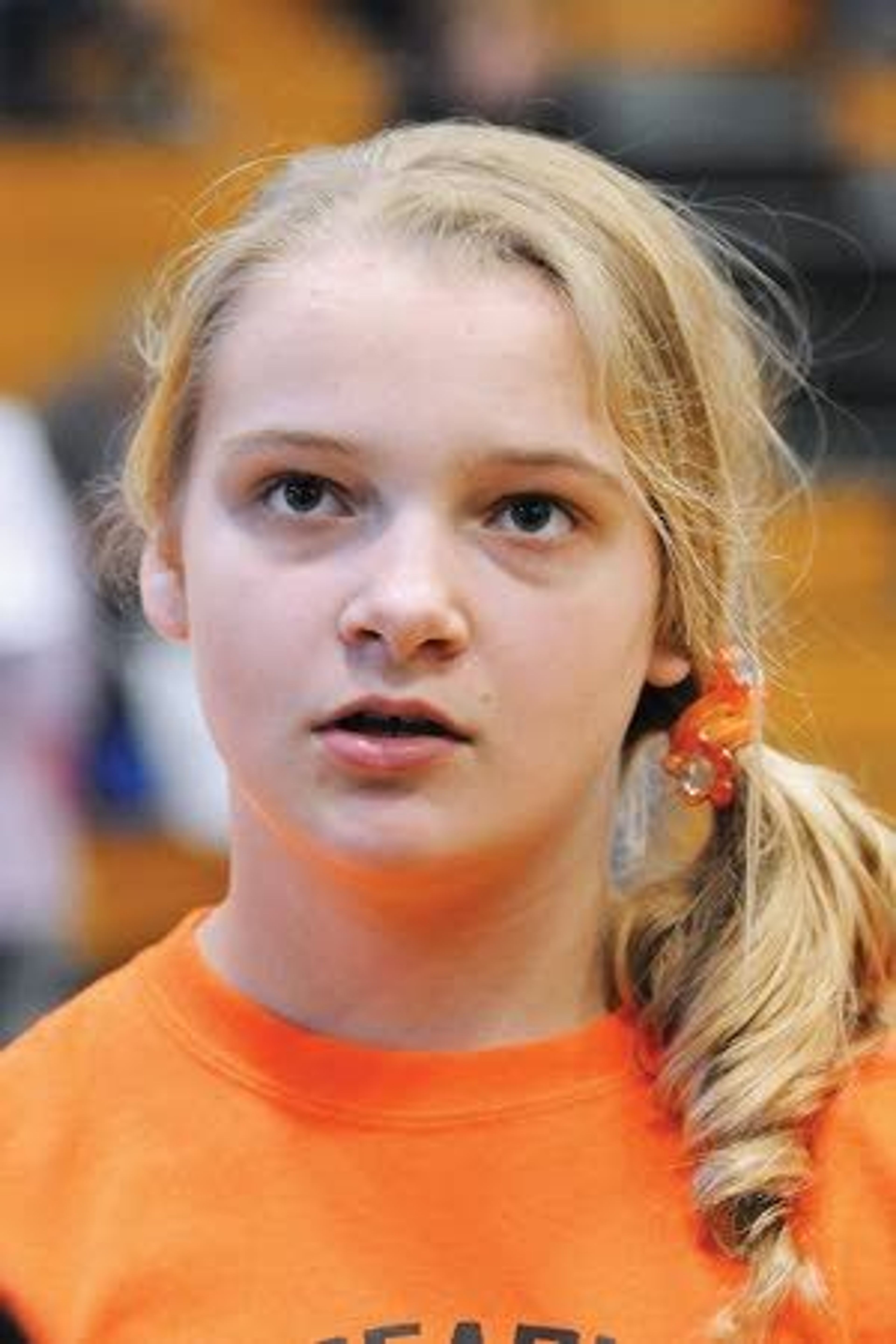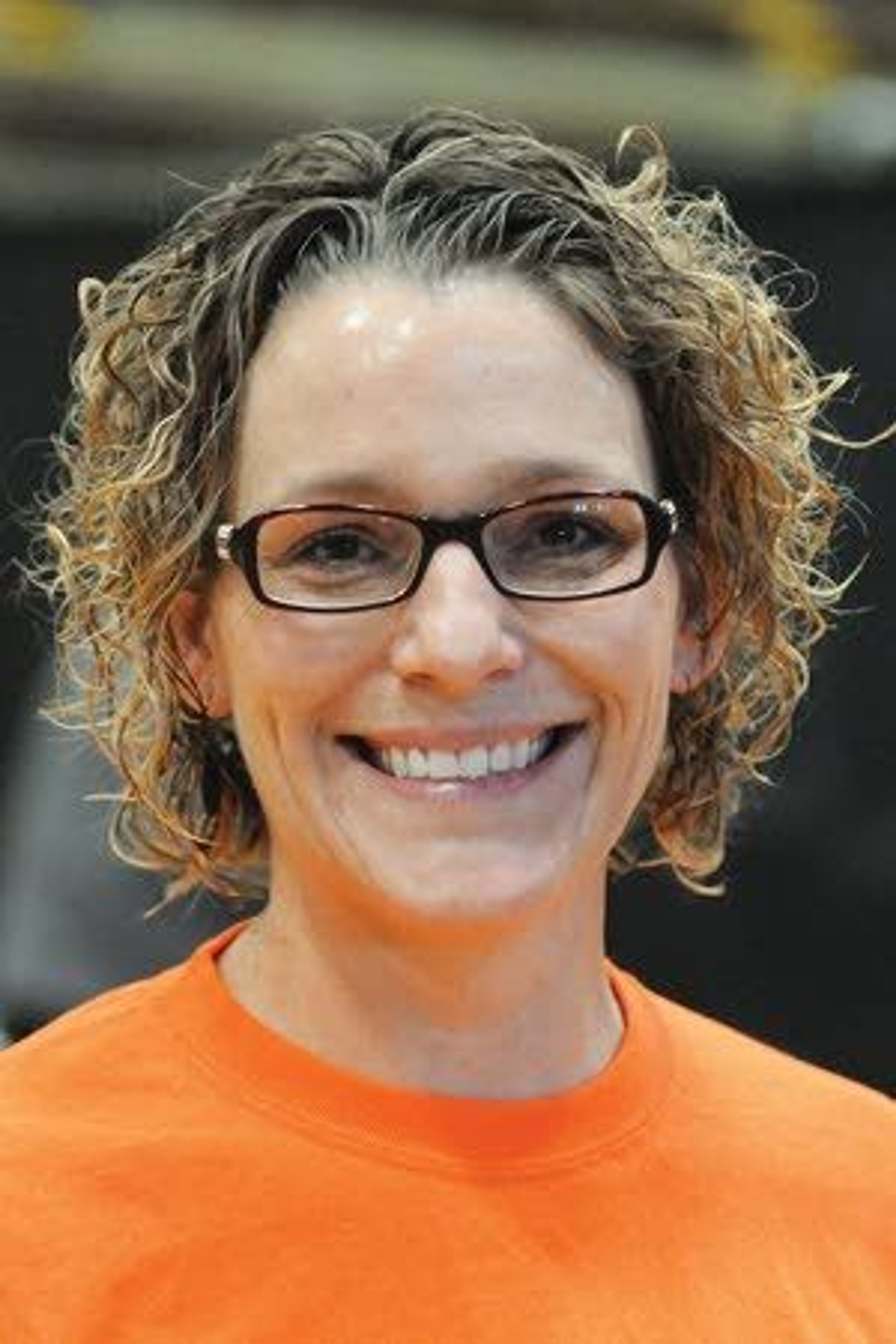MOSCOW - Brandon Vetter wanted his team to click together just like the world's most famous plastic building bricks at Saturday's LEGO robotics championship in Moscow.
"We have argued a little," the 11-year-old Grangeville Elementary/Middle School student said, engulfed in the din that echoed through the University of Idaho Memorial Gym. "Then we were better after that. We just worked it out, I guess."
Team building is one of the most valuable aspects of the FIRST (For Inspiration and Recognition of Science and Technology) LEGO League competition, especially for kids who don't typically go out for team sports, said Will Boyd, a 4-H science coordinator at the UI. The highest-profile part of the competition each year is clearly building robots to complete a complex course of challenges, but teams also have to score well with a research and presentation component to come out on top.
"The learning is not just in the tech world," Boyd said. "The learning is soft skills too, like in the presentation, by being a good team member and learning to negotiate and working to come to a consensus. Those are skills that are really important in the work world, but don't necessarily come with a degree or certification."
Boyd said some states have already started recognizing FIRST LEGO as a team sport, and an effort is underway to gain the same status in Idaho. Momentum is building because people are buying into the idea that kids often learn best by doing.
"The kids are actually able to see the physical science applications in front of them while they're participating in the project," Boyd said, raising his voice to be heard over the enthusiastic announcer. "It's powerful, hands-on, project-based learning, and I think our society in general is realizing the value of that."
Vetter's coach, Suzanne Acton, said she's seen that progression first-hand.
"In the beginning, they had no clue what to do," said Acton, whose son Aidan is also on the Camouflage Squirrel Association team. "But each time they would complete a mission or try a mission, you would see their little brains working, and they would come up with a new idea and expound on that. They've come a long way."
The focus on what Boyd called "soft skills" even helped channel one youngster toward her future. Sydney McRoberts of Lewiston said her team's work has convinced her to join the Peace Corps.
"We learned through our research project that people drop out of college because they lack a clear goal and dream," said the 11-year-old student at All Saints Catholic School and member of the Gearheads team. "I've had job ideas that I wanted to do. I wanted to be a doctor or a veterinarian or a nurse. If I go into the Peace Corps, I can do all those in one."
The team interviewed school counselors, business leaders and college professors as part of its research. McRoberts' mom Heidi McRoberts said she has seen her daughter grow through that experience, but said she's taken to robotics just as well.
"She loves it," Heidi McRoberts said. "She's always been interested in LEGOs, and this definitely exposes them to the technical side of careers."
Vetter, the son of Karin and Bill Vetter of Grangeville, was just pleased to be among the 32 teams that made it to the northern Idaho championship round, especially since it was the Squirrels' first year of competition.
"It doesn't matter if we win or not," he said. "We made it this far, and we weren't expecting that."
---
Mills may be contacted at jmills@lmtribune.com or (208) 848-2266.
